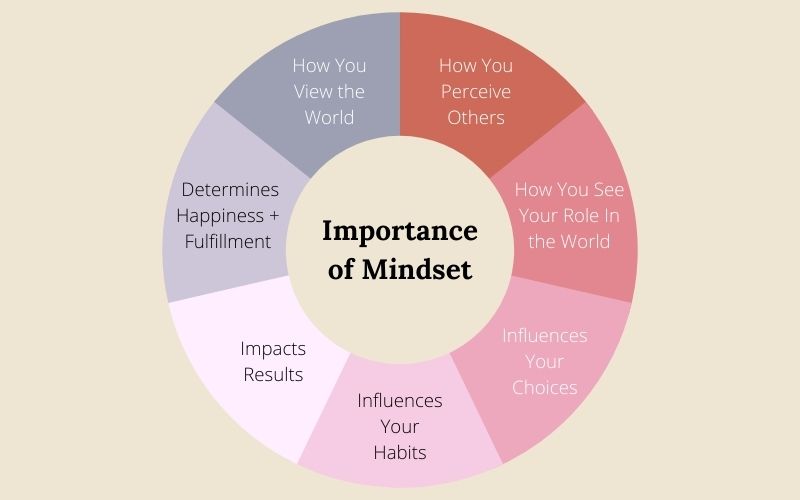“Cultivating a Thriving Mind: 10 Essential Habits for a Healthy Mindset
With excitement, let’s uncover the fascinating topic of Cultivating a Thriving Mind: 10 Essential Habits for a Healthy Mindset. Come along as we weave together engaging insights and offer a fresh perspective to our readers.
About Video Cultivating a Thriving Mind: 10 Essential Habits for a Healthy Mindset
Cultivating a Thriving Mind: 10 Essential Habits for a Healthy Mindset

In the hustle and bustle of modern life, it’s easy to get caught up in external demands and forget about the most important asset we possess: our minds. A healthy mindset is the bedrock of a fulfilling life, influencing everything from our relationships and career to our overall well-being. It’s not about being perpetually happy or avoiding challenges, but rather about developing resilience, self-awareness, and a positive outlook that empowers us to navigate life’s ups and downs with grace and strength.
Developing a healthy mindset is not a one-time achievement, but rather an ongoing process of cultivation. It requires conscious effort, dedication, and the adoption of habits that nurture our mental and emotional well-being.
Here are ten essential habits that can help you cultivate a thriving mind:
1. Practice Gratitude
Gratitude is a powerful emotion that shifts our focus from what we lack to what we have. Regularly acknowledging the good things in our lives, no matter how small, can significantly boost our mood, increase our sense of contentment, and foster a more positive outlook.
-
How to Implement:
- Gratitude Journal: Keep a journal and write down a few things you’re grateful for each day.
- Gratitude Meditation: Take a few minutes each day to reflect on the things you appreciate.
- Express Gratitude: Verbally express your appreciation to others.
- Gratitude Jar: Keep a jar and write down things you’re grateful for on slips of paper, then read them periodically.

-
Benefits:
- Increased happiness and positive emotions
- Improved sleep quality
- Reduced stress and anxiety
- Stronger relationships


2. Cultivate Self-Compassion
Self-compassion involves treating yourself with the same kindness, care, and understanding that you would offer to a friend who is struggling. It’s about acknowledging your imperfections, accepting your mistakes, and recognizing that you’re not alone in your experiences.
-
How to Implement:
- Self-Compassion Break: When you’re feeling down, take a moment to acknowledge your suffering, remind yourself that everyone struggles, and offer yourself kind words.
- Mindful Self-Compassion Meditation: Practice guided meditations that focus on self-compassion.
- Write a Letter to Yourself: Write a letter to yourself from the perspective of a compassionate friend.
-
Benefits:
- Reduced self-criticism and shame
- Increased emotional resilience
- Improved self-esteem
- Greater overall well-being
3. Embrace Mindfulness
Mindfulness is the practice of paying attention to the present moment without judgment. It involves observing your thoughts, feelings, and sensations as they arise, without getting carried away by them. Mindfulness helps us to become more aware of our inner experiences, allowing us to respond to them with greater clarity and wisdom.
-
How to Implement:
- Mindful Meditation: Set aside a few minutes each day to sit quietly and focus on your breath.
- Mindful Walking: Pay attention to the sensations of your feet on the ground as you walk.
- Mindful Eating: Savor each bite of food, paying attention to the flavors, textures, and aromas.
- Mindful Listening: Fully focus on the person speaking without interrupting or planning your response.
-
Benefits:
- Reduced stress and anxiety
- Improved focus and concentration
- Increased self-awareness
- Enhanced emotional regulation
4. Practice Forgiveness
Holding onto grudges and resentment can be incredibly damaging to our mental and emotional health. Forgiveness, on the other hand, is the act of releasing anger and resentment towards someone who has wronged you, or even forgiving yourself for your own mistakes. It doesn’t mean condoning the behavior, but rather choosing to let go of the negative emotions that are holding you back.
-
How to Implement:
- Acknowledge Your Feelings: Allow yourself to feel the anger, hurt, and resentment without judgment.
- Empathize: Try to understand the other person’s perspective, even if you don’t agree with their actions.
- Write a Letter: Write a letter to the person you need to forgive, expressing your feelings and intentions. You don’t have to send it.
- Focus on Your Own Healing: Prioritize your own well-being and focus on moving forward.
-
Benefits:
- Reduced stress and anxiety
- Improved relationships
- Increased emotional well-being
- Greater sense of peace and freedom
5. Set Meaningful Goals
Having a sense of purpose and direction in life is essential for a healthy mindset. Setting meaningful goals, both big and small, gives us something to strive for, provides us with a sense of accomplishment, and helps us to stay motivated and engaged.
-
How to Implement:
- Identify Your Values: What is truly important to you in life?
- Set SMART Goals: Specific, Measurable, Achievable, Relevant, and Time-bound.
- Break Down Large Goals: Divide big goals into smaller, more manageable steps.
- Celebrate Your Progress: Acknowledge and celebrate your achievements along the way.
-
Benefits:
- Increased motivation and engagement
- Greater sense of purpose and direction
- Improved self-esteem and confidence
- Enhanced overall well-being
6. Cultivate Positive Relationships
Our relationships have a profound impact on our mental and emotional health. Surrounding ourselves with supportive, positive, and uplifting people can significantly boost our mood, reduce stress, and provide us with a sense of belonging.
-
How to Implement:
- Nurture Existing Relationships: Make time for the people who matter most to you.
- Seek Out Positive People: Spend time with people who make you feel good about yourself.
- Set Boundaries: Protect your energy by setting boundaries with people who drain you.
- Join Social Groups: Connect with people who share your interests and values.
-
Benefits:
- Increased happiness and well-being
- Reduced stress and anxiety
- Stronger sense of belonging
- Improved physical health
7. Practice Self-Care
Self-care is not selfish; it’s essential for maintaining a healthy mindset. It involves taking time to do things that nourish your mind, body, and soul. This could include anything from getting enough sleep and eating healthy foods to spending time in nature, reading a book, or taking a relaxing bath.
-
How to Implement:
- Prioritize Sleep: Aim for 7-8 hours of quality sleep each night.
- Eat a Healthy Diet: Nourish your body with nutritious foods.
- Exercise Regularly: Get your body moving to boost your mood and energy levels.
- Engage in Hobbies: Make time for activities that you enjoy.
- Practice Relaxation Techniques: Incorporate techniques like meditation, yoga, or deep breathing into your routine.
-
Benefits:
- Reduced stress and anxiety
- Improved mood and energy levels
- Enhanced physical health
- Greater overall well-being
8. Challenge Negative Thoughts
Our thoughts have a powerful impact on our emotions and behaviors. Negative thoughts can lead to feelings of sadness, anxiety, and hopelessness. Learning to identify and challenge negative thoughts is crucial for developing a healthy mindset.
-
How to Implement:
- Identify Negative Thoughts: Pay attention to the negative thoughts that arise in your mind.
- Challenge the Evidence: Ask yourself if there is any evidence to support your negative thoughts.
- Reframe Your Thoughts: Try to reframe your negative thoughts in a more positive or realistic way.
- Practice Cognitive Restructuring: Work with a therapist to identify and change negative thought patterns.
-
Benefits:
- Reduced stress and anxiety
- Improved mood and self-esteem
- Greater emotional resilience
- Enhanced problem-solving skills
9. Embrace Learning and Growth
A growth mindset is the belief that our abilities and intelligence can be developed through dedication and hard work. Embracing learning and growth allows us to see challenges as opportunities for growth, rather than as threats to our self-esteem.
-
How to Implement:
- Seek Out New Experiences: Step outside of your comfort zone and try new things.
- Embrace Challenges: See challenges as opportunities to learn and grow.
- Focus on Effort: Focus on the effort you put into something, rather than just the outcome.
- Learn from Mistakes: View mistakes as learning opportunities, rather than as failures.
-
Benefits:
- Increased resilience and adaptability
- Greater sense of purpose and fulfillment
- Improved self-esteem and confidence
- Enhanced creativity and innovation
10. Seek Professional Support
Sometimes, despite our best efforts, we may need professional support to overcome mental health challenges. Seeking therapy or counseling can provide us with valuable tools and strategies for managing our emotions, improving our relationships, and living a more fulfilling life.
-
How to Implement:
- Research Therapists: Find a therapist who specializes in your area of concern.
- Schedule a Consultation: Meet with a therapist to discuss your needs and goals.
- Be Open and Honest: Share your thoughts and feelings openly and honestly with your therapist.
- Commit to the Process: Therapy is a process that takes time and effort.
-
Benefits:
- Improved mental and emotional health
- Enhanced self-awareness
- Stronger coping skills
- Improved relationships
Conclusion
Cultivating a healthy mindset is an ongoing journey, not a destination. By incorporating these ten habits into your daily life, you can nurture your mental and emotional well-being, build resilience, and create a more fulfilling and meaningful life. Remember to be patient with yourself, celebrate your progress, and seek support when you need it. Your mind is your most valuable asset, so invest in its health and well-being.

